A slip of neon pink at the top of an ornate marble staircase greets you in the Palazzo Grassi: just one of many surprises in this retrospective of the work of self-declared ‘post-non-figurative’ painter Albert Oehlen, artfully curated by Caroline Bourgeois. It’s clear from the first step that colour is Oehlen’s friend.
The exhibition reveals the range of Oehlen’s oeuvre by displaying 85 works, spanning the 1980s to the present day, across the first and second floors of the Palazzo Grassi. Despite the German artist’s avowed desire for critical distance (he recently declared in an interview that ‘there is no art that touches me […]. Maybe I don’t like art’) his paintings radiate intimacy. You feel his presence not only in the rather forlorn self-portraits that sit under frescoes of decorative leaves and playful cherubs, but in the gestural brushstrokes – and occasional hand-applied strokes – of his more abstract works. Collaged layers of paint and paper fight to break to the surface, a storm of blurred and embossed logos, obscured by smears of colour. It’s the areas of collision that are the most captivating, where paper meets paint and colours clash – calling to mind Pollock’s deliberate chaos.
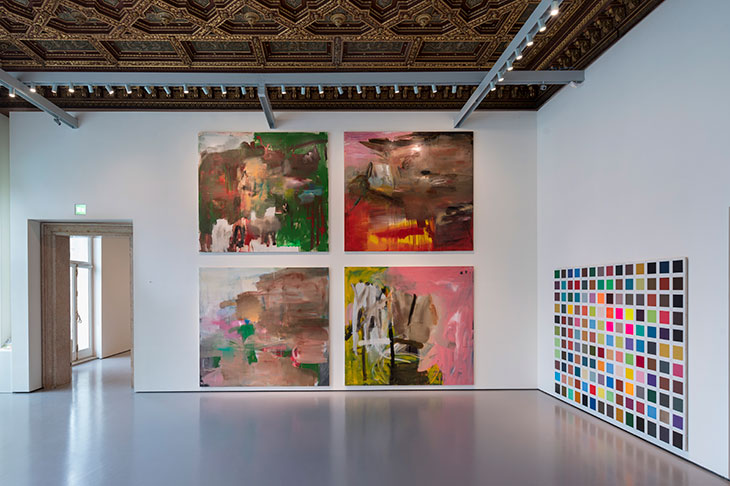
Installation view of (left to right) Elevator 1, Elevator 5, Elevator 6, Elevator 5 (all 2016) and Raumflug (1996) in ‘Albert Oehlen: Cows by the Water’ at the Palazzo Grassi, Venice, 2018. Pinault Collection. Photo: Matteo de Fina; © Palazzo Grassi
A series of oil paintings titled h.a.t. I-VI (2009) begins with plumes of gorgeous red smoke caught static on white canvas. It continues on another wall with grey swathes of pigment leaping to life, then marine blue and earthy brown. In perhaps the most impressive room of the exhibition, Oehlen’s Elevator paintings (1996–2016) hang like portals upon the walls, rectangular blocks of colour on large canvases reminiscent of fogged-up mirrors or rain-spattered windows. This is the power of colour at its loudest – vibrant, vigorous, and alive under the faded majesty of palazzo ceilings.
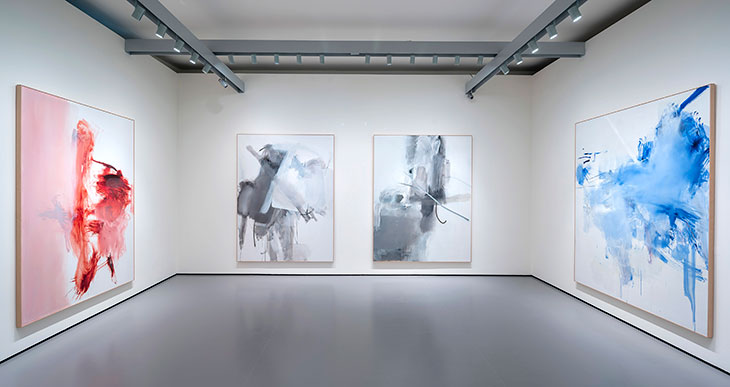
Installation view of (left to right) h.a.t. II, h.a.t. III, h.a.t. IV, h.a.t. V (all 2009) in ‘Albert Oehlen: Cows by the Water’ at the Palazzo Grassi, Venice, 2018. Pinault Collection. Photo: Matteo de Fina; © Palazzo Grassi
On the second floor things get stranger. We’re welcomed by a flickering TV screen blinking from purple to green, a couch, a pot plant, a bed. A self-portrait of the artist sits tucked under the covers, a phantom hand poking out from the duvet clutching at a paintbrush. Personal artefacts litter a makeshift studio: a record player and hi-fi system with LPs stacked neatly in one corner; a bright orange set of heaters with a small macchinetta coffee maker in the other. The intoxicating scent of turpentine, left out to soak the paintbrushes that sit by an unfinished canvas, circulates in the air. Moving further into the space, we view Oehlen’s portrait from another angle, wary interlopers afraid to wake a sleeping ghost.
Leaving this strange bedroom-studio, we’re confronted with a series of giant collages. Despite their impressive scale, these montages of brand logos and advertising fall a little flat compared to the works on the first level; they feel less animated, their surfaces full to bursting but not with life. Colour is now a consumer product, the power of red diluted by its associations with the familiar: Coca Cola and Kool Aid.
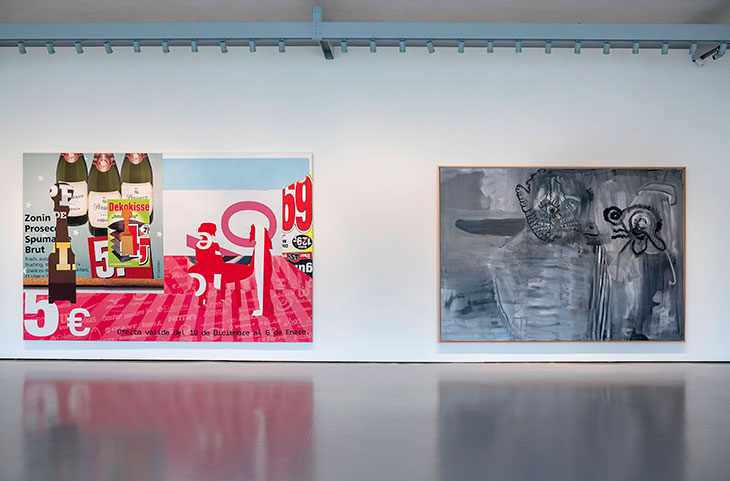
Installation view of (left to right) I 33 (2013) and Titankatze mit Versuchstier (1999) in ‘Albert Oehlen: Cows by the Water’ at the Palazzo Grassi, Venice, 2018. Private collection and Skarstedt, New York. Photo: Matteo de Fina; © Palazzo Grassi
Oehlen is strongest with paint, especially when it’s left to its own devices (or at least appears to have been). In the Elevator series we witness this animated spirit; how the paint has been left to drip gently, or heaved in different directions with a stir from a helping hand or a sudden shift of gravity. There is a firmness to Oehlen’s craft with oils here, a self-confidence that invites the viewer to gaze into another world through the window of the canvas, even if only for a moment. It’s an escape that’s well worth the walk through the floating city to find.
‘Cows by the Water: Albert Oehlen’ is at the Palazzo Grassi, Venice, until 6 January 2019.
Unlimited access from just $16 every 3 months
Subscribe to get unlimited and exclusive access to the top art stories, interviews and exhibition reviews.

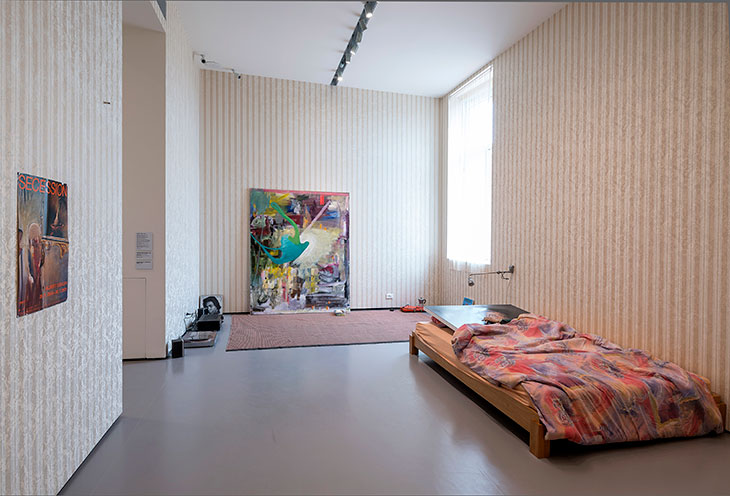
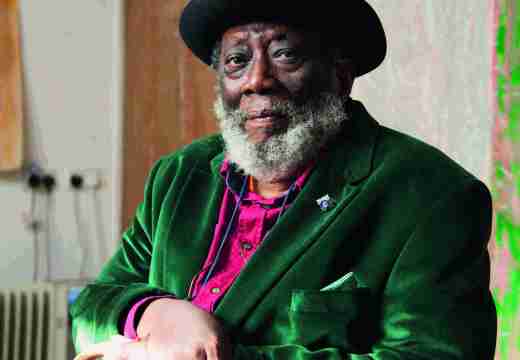
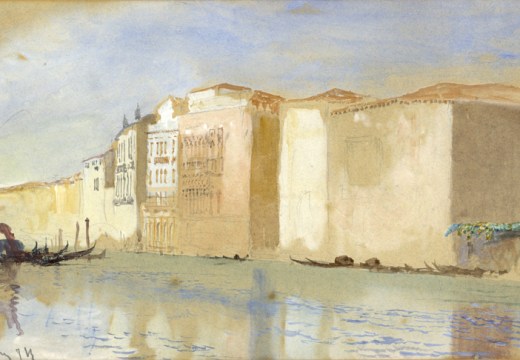
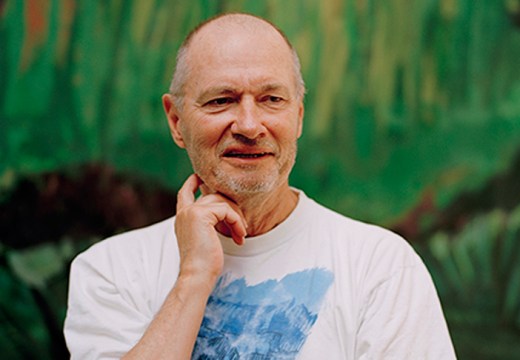









![Masterpiece [Re]discovery 2022. Photo: Ben Fisher Photography, courtesy of Masterpiece London](http://www.apollo-magazine.com/wp-content/uploads/2022/07/MPL2022_4263.jpg)
The threat to Sudan’s cultural heritage